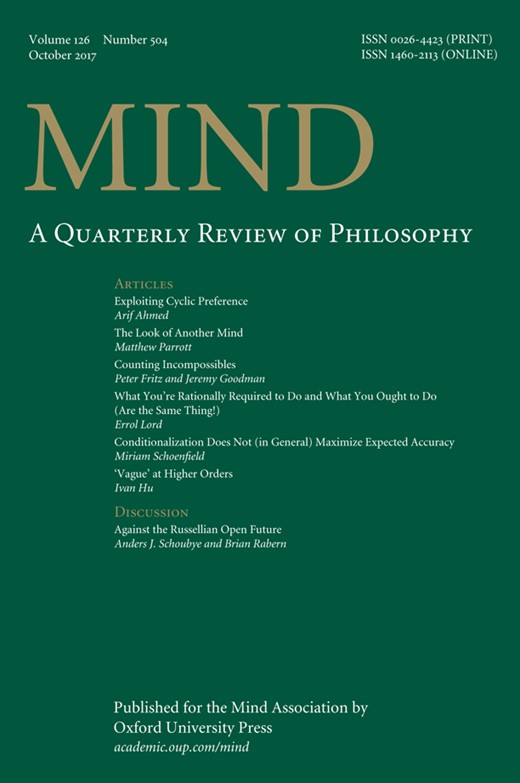-
Views
-
Cite
Cite
Yitzhak Y. Melamed, Spinoza and Dutch Cartesianism: Philosophy and Theology, by Alexander X. Douglas, Mind, Volume 126, Issue 504, October 2017, Pages 1244–1251, https://doi.org/10.1093/mind/fzx012
Close - Share Icon Share
Extract
Descartes attitude toward Christianity and revealed religion is a pretty enigmatic issue. On the one hand, we find Descartes making the hyperbolic claim that God creates the eternal truths of mathematics and logic from absolute freedom of indifference:
Along the same lines, Descartes counsels Mersenne ‘not to hesitate to assert and proclaim everywhere that it is God who lays these laws in nature just as a king lays down laws in his kingdom’ (AT X 145| CSM III 23, emphasis added). For many of Descartes medieval predecessors, such claims – which make the truths of mathematics and logic depend on God’s arbitrary will – would be nothing more than a form of popular, unintelligible fanaticism with which there is hardly any point engaging in philosophical discourse.If anyone attends to the immeasurable greatness of God he will find it manifestly clear that there can be nothing whatsoever [nihil omnino esse posse] which does not depend on him. This applies not just to everything that subsists, but to all order, every law, and every reason for anything's being true or good [nullamve rationem veri & boni]. If this were not so, then … God would not have been completely indifferent with respect to the creation of what he did in fact create. (AT VII 435-6 | CSM II 293-4, emphasis added)



